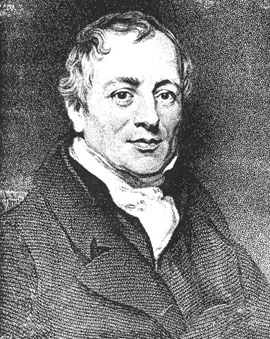Free-Trade Economics: Fantasy We Cannot Afford

David Ricardo
Six reasons the U.S. should abandon the myth
There was a great opinion piece published this week in Bloomberg News of all outlets that makes the case for policymakers in our country to rethink their devotion to the ideology of 'free' trade. Ian Fletcher, author of the book “Free Trade Doesn’t Work” and an adjunct fellow at the U.S. Business and Industry Council, dismantles the myth of free-trade economics one dubious assumption at a time:
Any serious discussion of free trade must confront David Ricardo’s celebrated 1817 theory of comparative advantage, whose tale of English cloth and Portuguese wine is familiar to generations of economics students. According to a myth accepted by both laypeople and far too many professional economists, this theory proves that free trade is best, always and everywhere, regardless of whether a nation’s trading partners reciprocate.
Unfortunately for free traders, it is riddled with holes, some of which even Ricardo acknowledged. If they held true, the hypothesis would hold water. But because they often don’t, it is largely inapplicable in the real world. Here's why:
Here's one of the dubious assumptions Fletcher outlines, to which any one of the hundreds of thousands of manufacturing workers who've lost their jobs because of NAFTA and the World Trade Organization can attest:
-- The third dubious assumption is that free trade doesn’t worsen income inequality. But, in reality, it squeezes the wages of ordinary Americans because it expands the world’s effective supply of labor, which can move from rice paddy to factory overnight, faster than its supply of capital, which takes decades to accumulate at prevailing savings rates. As a result, free trade strengthens the bargaining position of capital relative to labor. And there is no guarantee that ordinary people’s gains from cheaper imports will outweigh their losses from lowered wages.
The implications of all the loopholes he outlines in Ricardo's theory, Fletcher says, is "That trade is good for America, but free trade, which is not the same thing at all, is a very dicey proposition."
Read the rest of the story online at Six Reasons for U.S. to Abandon Free-Trade Myth: Ian Fletcher.
